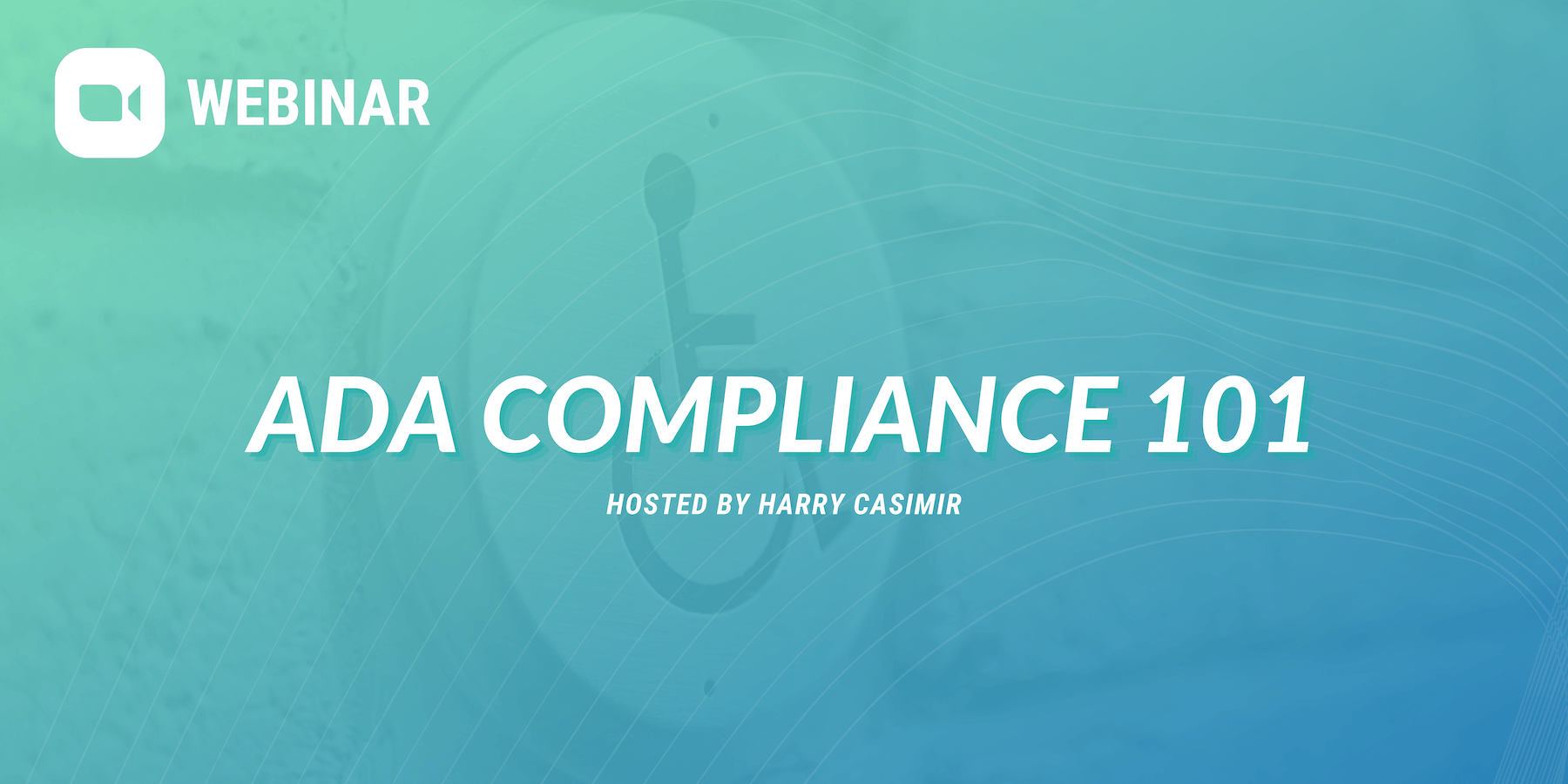
1 in 4 adults in the United States lives with a disability. ADA stands for the Americans with Disabilities Act, a law that prohibits discrimination against individuals in all areas of public life, including all private and public places open to the general public.
Websites have become public spaces, as many people use them daily to complete tasks such as paying bills or ordering a product or service. Web content should be accessible to blind users, deaf users, and those who must navigate by voice, screen readers, or other assistive technologies.
ADA-compliant websites not only help make the internet inclusive and accessible for all, but compliance also protects your business from an ADA-related lawsuit.
In this webinar, you will learn:
- What ADA compliance is and how it applies to websites.
- The Web Content Accessibility Guidelines and standards to achieve website compliance.
- The three main reasons why it is important to have a compliant website.
- How to ensure your website is compliant.
